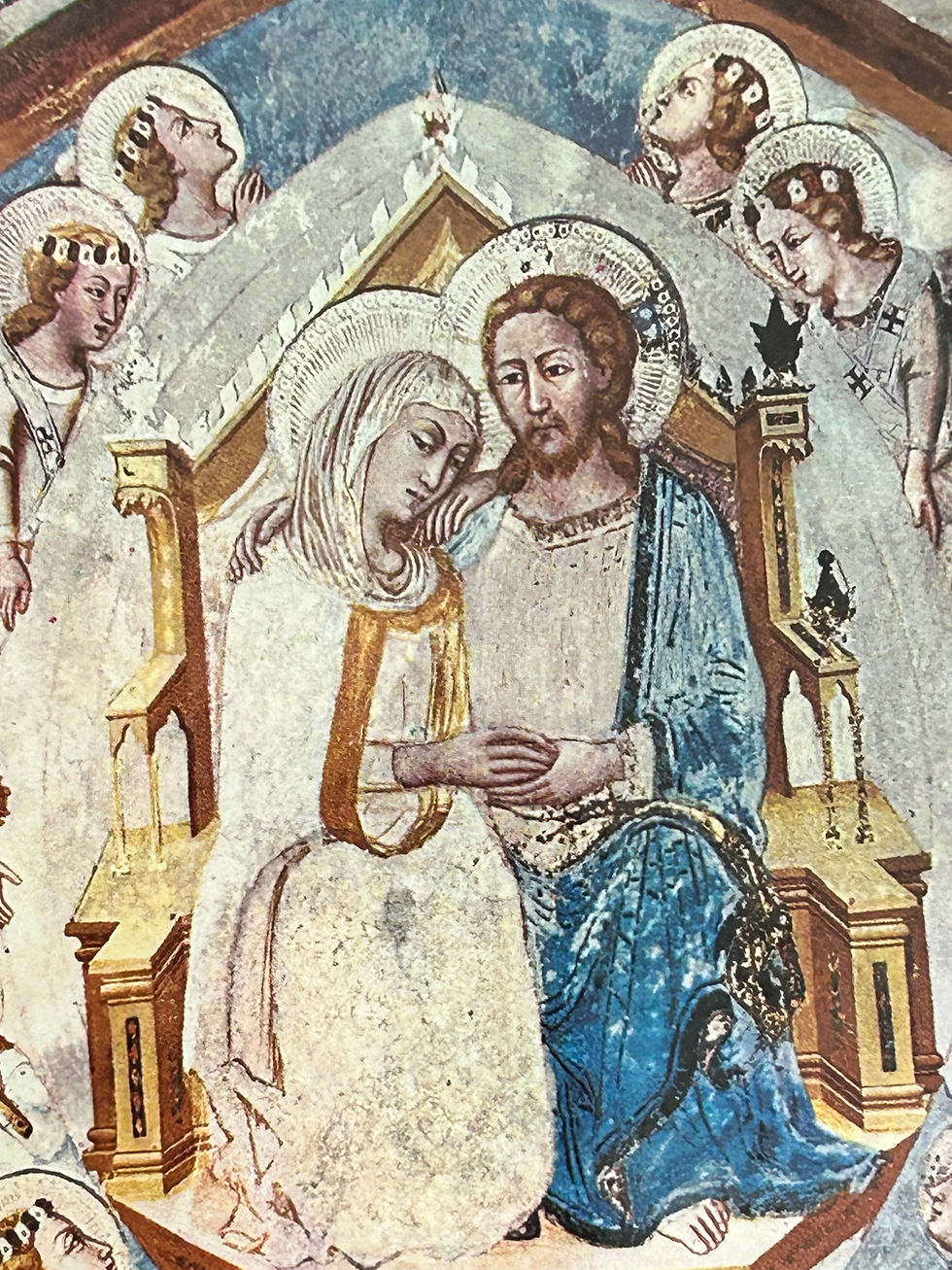Year for the Priest - contemplating the priesthood
- Dr. Anthony Lilles

- Jul 5, 2009
- 4 min read
This Year for the Priest offers a unique opportunity to reflect on the gift of the priesthood for the Church. In recent years, the Roman Catholic priest has been an object of derision, especially in the mainstream media. Yes, there were and always have been some priests who were criminals - but the vast majority of priests are dedicated men who want to serve God and humanity. They feel called to something humanly impossible. Yet with great trust in God, they have ventured to say "yes" to the Lord's divine proposal. Risking everything and sacrificing the dearest things in life, they have ventured a life of the Gospel in which they help people encounter the Risen Lord. In return for their dedication, they suffer trials and persecutions and rejection of every kind. Good men who have devoted themselves to the Lord have been robbed of their reputations. Others who have struggled with faithfulness have been scandalized. All of them must deal with rejection and at least an undercurrent of constant abuse. There are even some who do not know what they believe anymore. Our culture has rejected the priesthood - that is why there are very few news stories, movies or shows made today that depict the priest as morally upright, good and strong. In fact, it is hard to find movies, books or shows that depict any man that way, but this is true of priests in particular. It is as if truly and fairly dealing with the priest is loathing to our cultural elite. In a future post, I would like to show that this is a pattern played out over and over again in history. Today, I would only like to spend a moment reflecting on the special witness to Christ that these men offer the world. It is precisely because of this rejection that the role of the priest comes into relief for us today. Only someone rejected and persecuted and hated can witness to Christ the Suffering Servant. For those of you who are deacons, you too share in this mystery. But today, considering the priesthood as such, we must take a moment and reflect on what this means. There is only one priesthood - the priesthood of Christ - but there are different ways of participating in it. Most of us participate in this by faith and baptism. This is what allows us to worship and interceded for one another in a singular way. There is also a special way of participating in the priesthood through what St. Paul described to Timothy as the laying on of hands. We do not have time to develop the theology of Holy Orders. For now, I will just say that this way of participating in Christ priesthood is ordered to building up the Church in a particular way. In particular, those who receive this sacrament lead the Church in offering the Eucharist - the prayer Christ commanded us to offer the night before he died. To lead this prayer requires that someone be touched by Christ in a special way, transformed so as to be able to act as Christ in a special way. This is what Christ confers through priestly ordination. The priest then is a special sign of Christ. In good times this sign is difficult to understand. Without persecution, it is easy to think of the priest as a "dispenser of the sacraments", to reduce his role to mere functionality. But the special configuration of the priest to Christ does not admit of such reductionism. In times of persecution, when the priest is rejected like Christ was, his person more fully reveals the mystery of the Lord. Even when he is in the midst of the busiest of cultures—he is in solitude set apart by God for the things of God. Because the world has rejected the One true God - it must reject the priest. Here we see one small aspect of the special trial a priest must suffer. His special configuration to Christ does not take away human weakness, or fear, or the desire to be thought of highly by others - to be accepted. Priests struggle in particular with loneliness. At his best, he offers everything he has to those whom he serves, whom he believes God has entrusted to him. Sometimes, when there is nothing else left to give - he still comes to serve with empty hands. It is precisely in this struggle to love when there seems nothing left to give, a struggle revealed forcifully in persecution, that the priest realizes his special identity before the Lord and the world. The priest in this struggle becomes an icon of the Suffering Servant, an icon that reveals the love of God the Father, who gave everything, even his own Son for our sakes. When the priest has given all until there is only Jesus to give, and then he gives us the Lord, he remains empty handed like God the Father. In times of persecution, the priest love like this to be faithful to his identity - or he loses it. There are many priests who are struggling to love in this way. There are so many other aspects to this struggle - we will consider these in future posts. But this great struggle is why we need this year to encourage them, to build them up, to be with them in their suffering. In the midst of persecution, God sends messengers of love who provide a little consolation, a little hope in the darkness. We begin to do this today by praying for our priests and ministers - all those dedicated to serving the Lord.

Comments